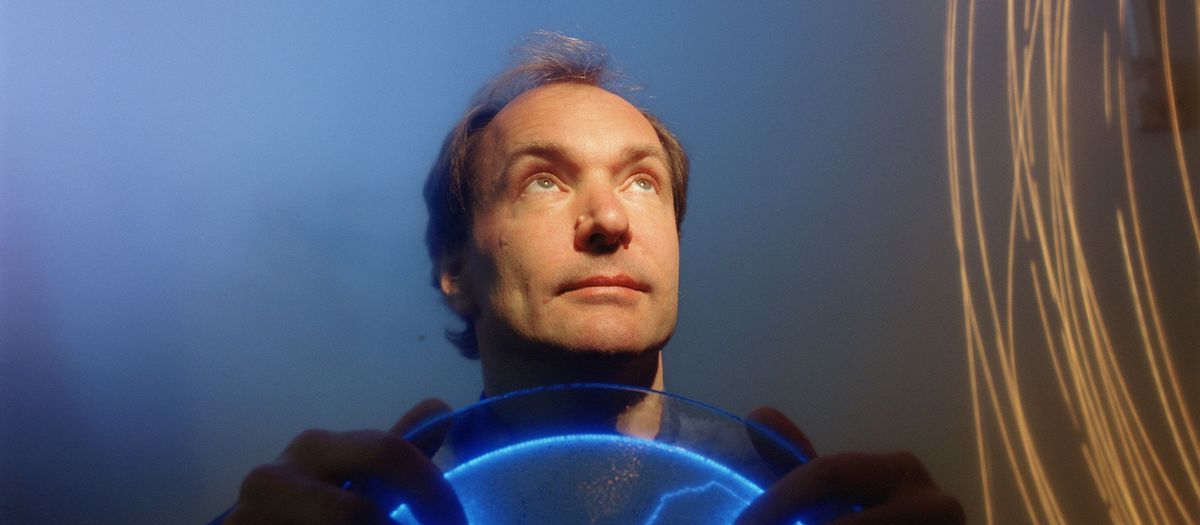Weaponized web?
March 17, 2018 | Expert Insights

Tim Berners-Lee, founder of the World Wide Web has warned against “gatekeeper” organisations such as Facebook, Google and Twitter, who have the potential to “weaponise” the web. These websites have come under scrutiny in the past year for misinformation, bots, and fake news.
Background
Tim Berners-Lee is a British computer scientist best known as the creator of the World Wide Web. Born in 1955, Berners-Lee studied at Queens College and the University of Oxford. He is currently a professor of computer science at Oxford. He has been named one of Time magazine’s “100 Most Important People of the 20th Century.”
Berners-Lee revolutionised the world as we know it today when he invented the World Wide Web. While the internet was invented in the 70s, prior to Berners-Lee’s contribution, it was a highly exclusive system-to-system form of communication, used for emails. In 1989 Berners-Lee formulated a document titled “Information Management: A Proposal”. This proposal would become the foundation for today’s web. By 1990, Berners-Lee had written the three fundamental technologies that define the web today: HTML (HyperTextMarkupLangauge), URI (Uniform Resource Interface, also called URL), and HTTP (Hypertext Transfer Protocol).
Berners-Lee is in favour of a free and open web. He has spoken in favour of net neutrality. “Gas is a utility, so is clean water, and connectivity should be too,” he said in 2017. Berners-Lee has also addressed the digital divide and the numerous inequalities that exist in the world today, and has advocated for inclusivity and access.
In recent years, social media has come under scrutiny for hate campaigns and terrorist propaganda. In May 2017, news was released saying Facebook was a key influencer in the outcome of the 2016 US Presidential elections and the Brexit vote. Social media giants Facebook, Twitter, and Google have repeatedly come under fire for allowing the proliferation of fake news, harmful propaganda, and the widespread presence of bots that promote misinformation. Recently, a number of EU countries have turned to legislation to restrict hate speech and propaganda, and to protect citizen data.
According to the Guardian, Google and Facebook (as well as their subsidiaries) account for 60% of digital advertising spending. In 2017, Facebook had an average of 2.2 billion monthly active users. 87% of online searches occur on Google.
Analysis
In an op-ed for the Guardian written in honour of the 29th anniversary of the World Wide Web, Tim Berners-Lee reiterated his vision for the internet: “I remain committed to making sure the web is a free, open, creative space – for everyone,” he wrote. Since March last year, he has addressed a number of issues to do with misinformation campaigns and internet regulation.
“Targeted advertising allows a campaign to say completely different, possibly conflicting things to different groups. Is that democratic?” Berners-Lee had asked last year, referencing the alleged Russian interference in US elections. “We have these dark ads that target and manipulate me and then vanish because I can’t bookmark them. This is not democracy – this is putting who gets selected into the hands of the most manipulative companies out there.”
This week, the computer scientist reiterated his support for tighter regulations on political advertising. Berners-Lee stated his belief that giant social media networks such as Facebook and Google are increasingly being “weaponised”. Since these organisations control such a large proportion of the internet, they often act as “gatekeepers” to the information people can access online. The World Wide Web “was once a rich selection of blogs and websites”, he said. But this selection has “been compressed under the powerful weight of a few dominant platforms.”
"The fact that power is concentrated among so few companies has made it possible to weaponise the web," he stated. "In recent years, we've seen conspiracy theories trend on social media platforms, fake Twitter and Facebook accounts stoke social tensions, external actors interfere in elections and criminals steal troves of personal data."
Berners-Lee stressed that this problem is “anthropogenic”, like climate change. Problems such as these are manmade, he argued, and thus they can also be changed. “We have to grit our teeth… and not take it for granted that the web will lead us to wonderful things,” he said.
Assessment
Our assessment is that the internet has the potential to be weaponised. The European Union has taken some initiative to address issues such as fake news and social media manipulation. However, governments across the world must formulate legislation that holds corporations such as Facebook and Google accountable to users. We believe that the internet must remain a “free, open, creative space” through which people can access authentic information.








Comments